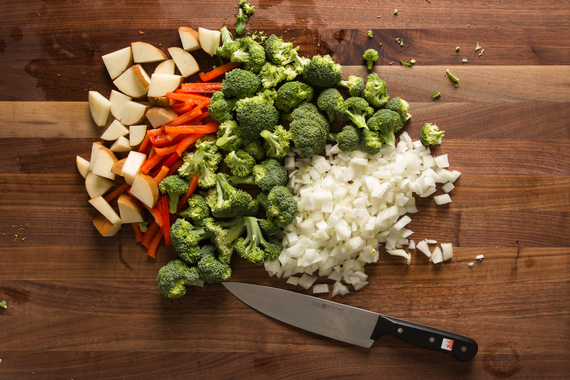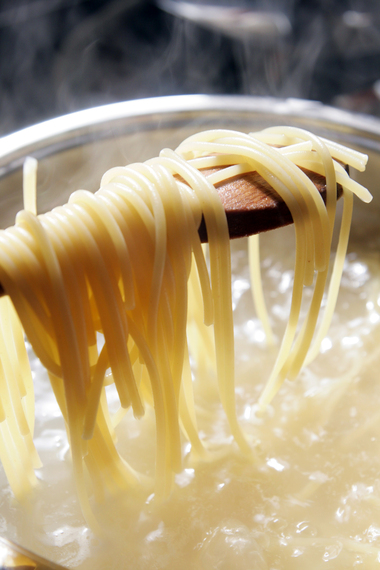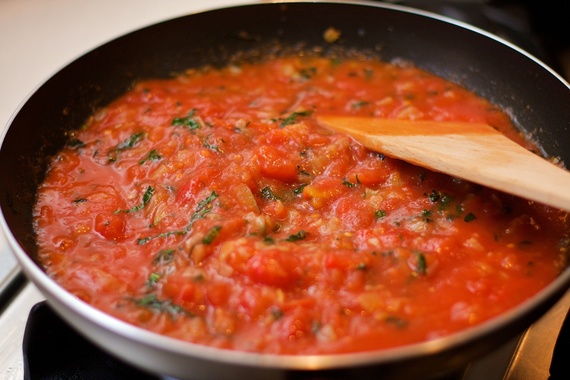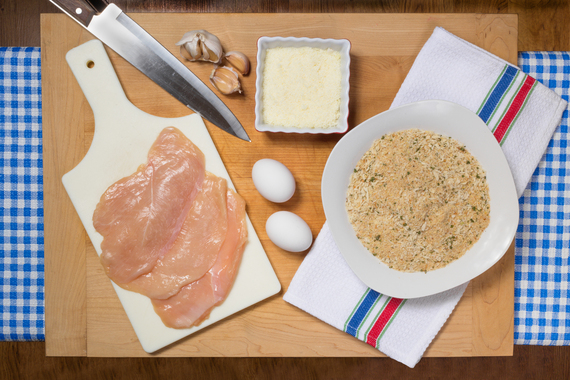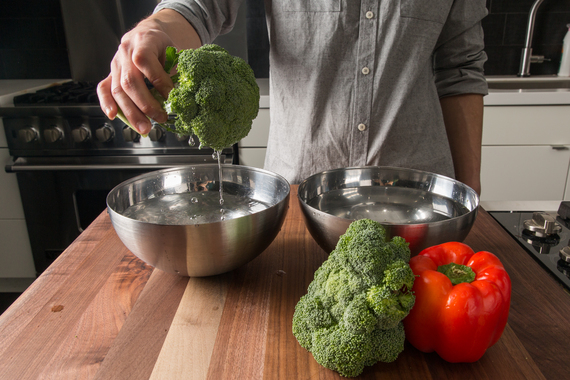By: Julianne Feder
When you're younger, it's perfectly acceptable if your kitchen skills are limited to hitting a couple buttons on the microwave or asking mom what's for dinner. By the time you're 30, though, it's time to step it up by mastering a few legitimate skills. Specifically, these 17, which can help you at least pretend some part of you is a grown-up contributing member of society.
Do pasta right
The difference between rookie- and restaurant-quality pasta is just a little pasta water, salt, finesse, and maybe butter (OK, often butter.) Your pasta-cooking water should taste like the ocean: salty. This seemingly obscene quantity of salt is crucial, as it will flavor your noodles. Cook your pasta al dente (meaning it still has some bite to it). Before you dump it out, save some water: it's loaded with all the beautiful starches from your pasta that will naturally make any sauce you add it to creamier. Finish off your pasta in a sauté pan with whatever sauce you desire, plus some of that pasta water. This way the sauce will be creamier and will better bind to your pasta. And adding a little butter at the end never made anything worse. Once you've got the basics down, try these ridiculously easy weeknight pasta dinners!
Know three ways to cook eggs
Eating fried eggs every morning can get boring fast. But once you can scramble (recipe here!), poach, soft boil, hard boil (recipe here!), or make an omelet (recipe here!) or frittata, no day will be the same. You probably know how to scramble or fry an egg, so we recommend mastering poached eggs and the omelet. They are the two most sophisticated egg form,s and you'll be sure to impress any date or friend if they're lucky enough to find themselves at your place for breakfast or brunch.
Make pan sauce
Pan sauces are a quick and easy way to take your roasted chicken or pasta to the next level. If you've roasted or seared a piece of meat, the little brown bits at the bottom are solid gold. Hit them with a little wine, garlic, and chicken stock and within minutes you'll have a ridiculously delicious sauce. Other quick sauces can consist of tomatoes, basil, and olives; white wine, shallots, and tarragon; or the classic lemon, capers, and brown butter. Add a dab of cold butter at the end, off the heat, to emulsify your sauce and make it extra delicious.
Make a vinaigrette
Store-bought salad dressings are for punks and stars of Cool Hand Luke. They are loaded with sugars and so many unnecessary ingredients that allow them to sit on the shelf for ages. Instead, make your own. Vinaigrettes have two basic components: acid and fat. Acid is usually a vinegar or citrus and the fat is often a type of vegetable oil. They work on a 1:3 ratio of vinegar to oil, or 1:2 for milder acids such as lemon juice. Throw in some salt and pepper and you have basic a vinaigrette. Add mustard to help bind the mixture and add some flavor. Then get creative. Mix up the vinegars and oils, add honey, shallots, ginger, soy sauce, and herbs. Consider Newman owned.
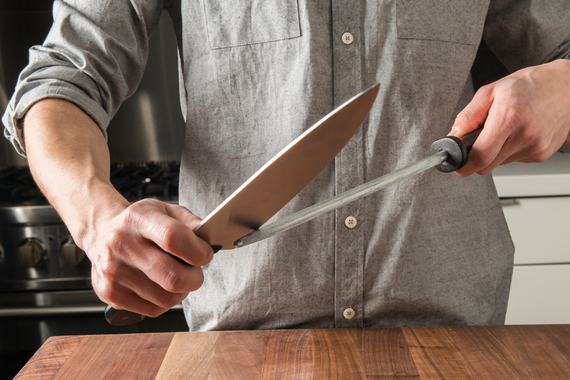
Credit: Cole Saladino/Thrillist
Sharpen knives
Fun fact: dull knives are more dangerous than sharp ones, and are more likely to slip when cutting because they don't have a defined edge. So don't keep dull knives. There are three main ways to handle sharpening: use a sharpening stone, use a manual or electric sharpener, or send your knives out. The pros all use stones, but it requires some technique and time. A sharpener is easy enough to use, but if you are super lazy, just send them out. Warning: professional sharpeners tend to take a lot off the knife, so your knife's lifespan may decrease. Not sure if your knives are dull? Carefully run the blade over your thumb nail. If it catches, you have a sharp knife. If it glides right over, it's dull as hell. Now go and sharpen it.
Handle a knife
Basic knife skills are an integral part of cooking. Yes, you may say you can avoid any knife work by buying pre-made sauces, soups, or the like, but then you ain't cooking and it's not fresh and you're no better than an 18-year-old college boy. Learn how to hold a knife properly so you don't cut off your fingers and then start slicing and dicing. Cutting up onion is a great place to start. Congratulations, you are now an adult.
Make a chicken cutlet
The chicken cutlet is like chicken fingers for grown-ups. And who doesn't love chicken fingers? The proper breading technique requires four steps: 1) season your chicken; 2) dip it in flour; 3) dip it in eggs; 4) dip it in breadcrumbs. Then fry or bake it. If using a chicken breast, we recommend either pounding it or slicing it in half to ensure a crispy-yet-moist cutlet. Personally we prefer skinless, boneless chicken thighs, but that's your call.
Once you've mastered this basic principle, countless variations are at your disposal. You can substitute chicken with almost any protein, from pork and beef (think chicken-fried steak) to fish and even tofu, and serve it over rice or salads, in wraps, sandwiches, and more. With a few simple variations and help from your foreign-language buddy, you can be cooking up Milanese, schnitzel, or katsu (here's a Cap'n Crunch Chicken Katsu recipe for the bold). Sounds fancier than just a cutlet right?
Sharpen knives
Fun fact: dull knives are more dangerous than sharp ones, and are more likely to slip when cutting because they don't have a defined edge. So don't keep dull knives. There are three main ways to handle sharpening: use a sharpening stone, use a manual or electric sharpener, or send your knives out. The pros all use stones, but it requires some technique and time. A sharpener is easy enough to use, but if you are super lazy, just send them out. Warning: professional sharpeners tend to take a lot off the knife, so your knife's lifespan may decrease. Not sure if your knives are dull? Carefully run the blade over your thumb nail. If it catches, you have a sharp knife. If it glides right over, it's dull as hell. Now go and sharpen it.
More from Thrillist:
Like Thrillist on Facebook: www.facebook.com/Thrillist
